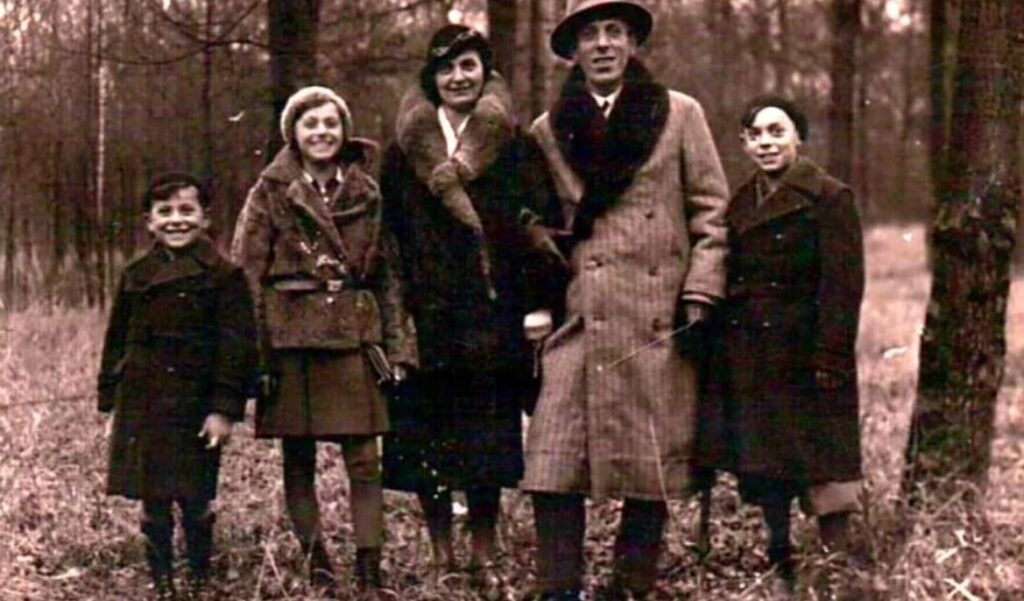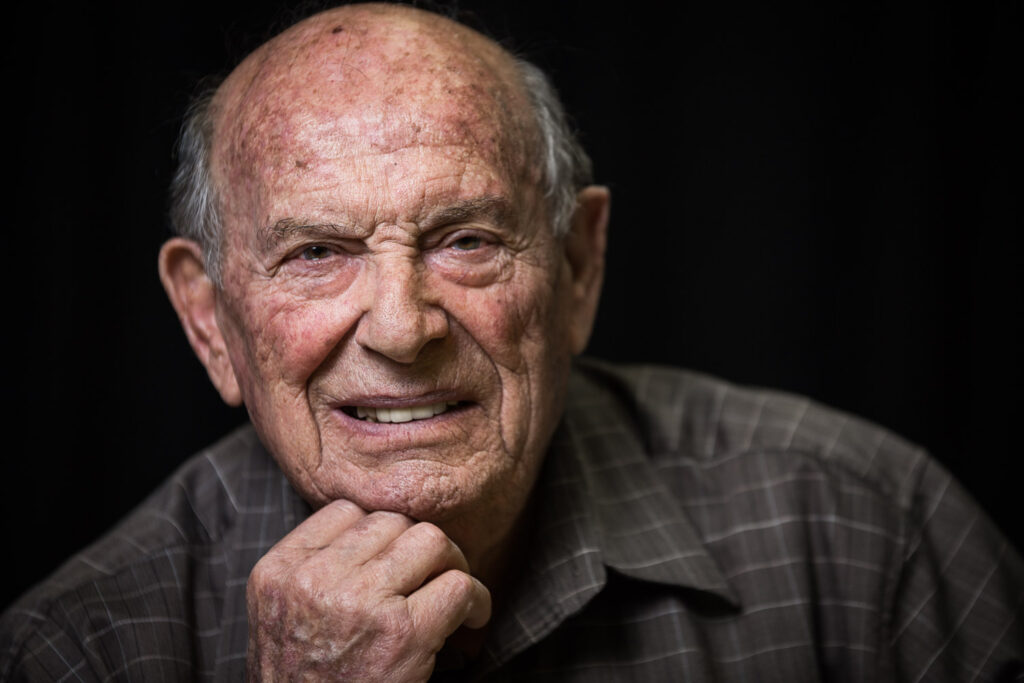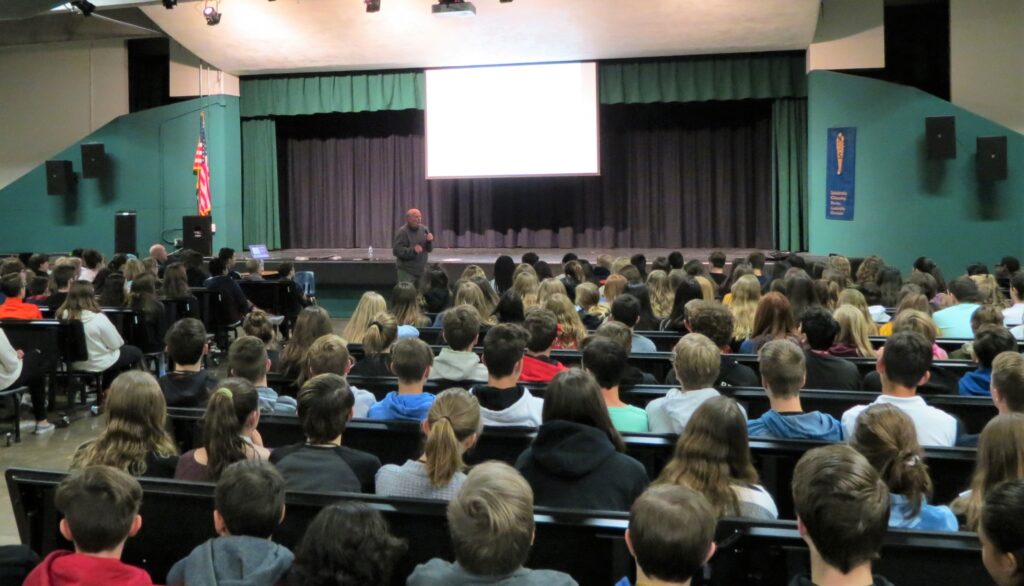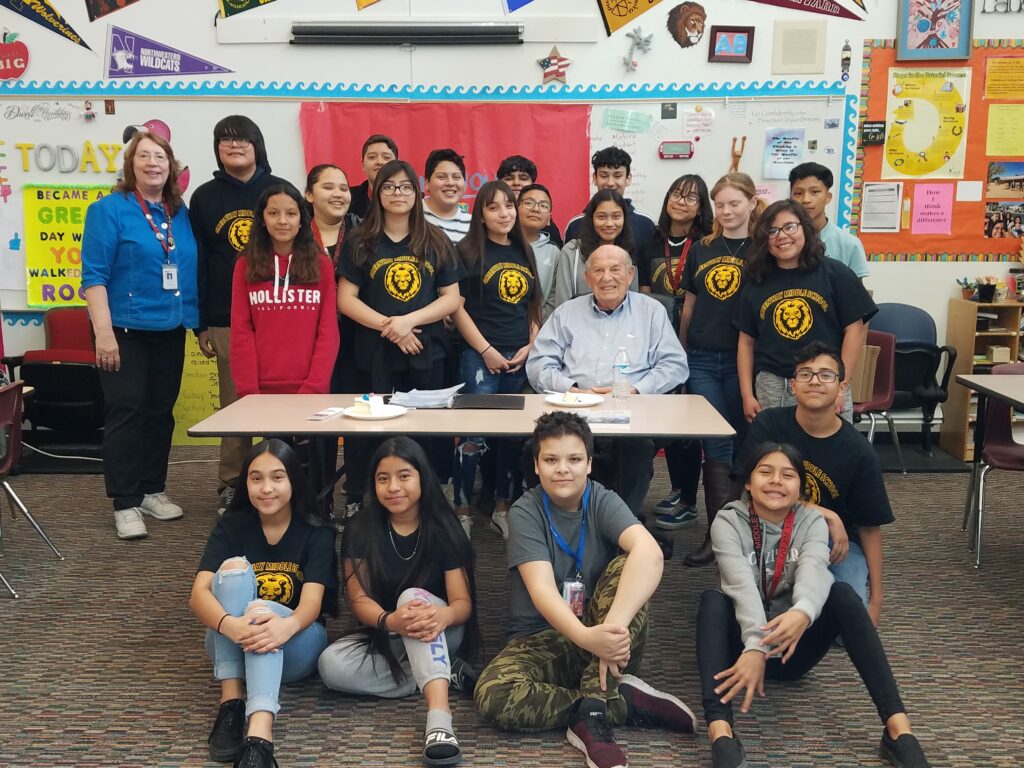Students Find Hope in the Classroom
When describing the end of last school year, many students might use words like “strange,” “weird,” or “lonely.”
The year came to an abrupt halt as teachers and parents worked to adapt to unprecedented circumstances. Instead of returning from spring break, students logged onto screens to see their teachers and friends. Instead of end-of-year class parties, yearbooks arrived unceremoniously in the mail. We all continue to do our best to navigate new challenges. This fall, whether in-person or online, students will return to classrooms that feel very different. More than ever, students need tools to help cope with a rapidly changing world.

Holocaust survivor Oskar Knoblauch was just 7 years old, living in Leipzig, Germany, when Hitler and the Nazi Party came into power. Three years later, he and his family fled to Kraków, Poland, in an attempt to escape Nazi anti-Semitic persecution.
On the morning of September 1, 1939, 13-year-old Oskar recalls the sounds of German bombers flying low over the rooftops, releasing destruction on Kraków’s railway station and buildings throughout the city. This was the beginning of what Oskar calls “the war whose effects would be felt throughout the world for many decades to come.” In his book A Boy’s Story, A Man’s Memory: Remembering the Holocaust 1933–1945, Oskar recalls his struggle to survive by working together with his family and guided by lessons of respect, hope, and giving 110%. He also attributes his survival to the help of “upstanders”—individuals who acted upon what was right and helped when possible, even if it meant putting their own lives at risk.

Now at the age of 94, Oskar has dedicated almost every day of the last 12 years speaking to tens of thousands of students across Arizona. His uplifting messages empower students with the knowledge that they can overcome challenges and make a difference in the lives of others by being upstanders. This is evident in the thousands of letters he has received from students thanking him for changing their perspective.
“You have taught me to not give up, to give people a chance; . . . it doesn’t matter what race or religion they are, we are all humans!”
Angela, student
“Your story really changed my point of view of people and I will do something good every day! I will not hate. Respect and accept people for what they are.”
Bryan, student
“I just wanted to say thank you for opening my mind on respect and tolerance. I didn’t realize the importance of those two words! From now on I will practice and incorporate respect and tolerance into my daily life! Thank You Mr. Knoblauch.”
Andrew, student

Photo: Scottsdale Arts.
To help share Oskar’s inspiring messages with students everywhere, Scottsdale Arts Learning & Innovation has worked with Oskar and veteran teachers to create Hope Chest, an immersive teaching resource based on Oskar’s book.
Lessons use arts activities and dialogue to foster a classroom community that is supportive and empathetic. Responding to journal prompts such as, “Describe a time in your life that you had to persevere. What was the outcome?” and “Write about something that you do to lift your spirits, cheers you up, and gives you hope,” students learn to recognize their ability to overcome difficult situations. Lessons are designed to meet English language arts and social studies standards.

Learning about the past not only prevents us from reliving our mistakes but also provides inspiring evidence that we can overcome adversity. While the classrooms that students return to this fall may feel very different, there is comfort in seeing the familiar faces of supportive friends and tremendously dedicated teachers. It is our goal that Hope Chest provides students the opportunity to reflect on their individual strengths, builds bridges of understanding between classmates, fosters empathy, and, most importantly, gives hope.
Learn more about Oskar; visit Voice of Tolerance.
Back to Spark home.
CONNECTIONS: Amplify | Immerse | Inspire
